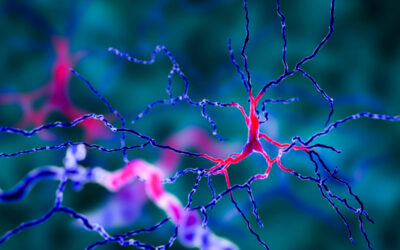Supercharge Your Health with Fasting
The start of the new year brings with it a new beginning – a time for resetting and renewing our moods, our bodies, and the way we flow through our days. The holidays are often a time of overindulgence in just about every way, lending itself to weight gain and making it more difficult for our bodies to detoxify. But a new year brings with it an invitation to refresh and start anew. Both our body and mind benefit from clearing out the collected debris from the past year and restoring our systems to a clean slate. Not only can cleansing and fasting help shake off the winter blues, research shows that it can supercharge your health. How do you know if fasting is right for you? What exactly are the health benefits? And what is the best and safest way to do it?

The body is always trying to get rid of what it doesn’t need, or what is burdensome to it. These substances can be simply the indigestible fiber from eating vegetables, or chemicals that we take in via alcohol, packaged food, food additives, pesticides, or other pollutants. When we intentionally do a cleanse or fast, we are purposefully supporting and strengthening our body’s intrinsic cleansing systems to remove this debris that collects overtime. Our body is in a constant state of seeking health and balance. It knows how to do its job brilliantly, though if we are giving it pollutants faster than it can clean them out, our energy drags, we feel sluggish and moody, we get headaches, and if it goes on too long, chronic illness sets in. One hundred years ago 1 in 6 people died of a chronic illness. Today, nearly half of all Americans suffer from at least one chronic disease, and that number is growing. More than two thirds of all deaths in the U.S. are caused by one or more of these five chronic diseases: heart disease, cancer, stroke, chronic obstructive pulmonary disease, and diabetes. In order to prevent the onset of these diseases, it is important from time to time to clean out the debris and reset our body.
Signs You Need a Reset
If you are struggling with any of the below problems, chances are pretty high that you can benefit from a true reset to rebalance certain areas of your health.
1. Your sweet tooth is out of control
Constant cravings are a big sign that something is off. When sugar is a staple in your diet, it can put your blood sugar and leptin hormones on a roller-coaster ride which increases your cravings even more, which can lead to diabetes, weight loss resistance, and other metabolic health problems.
2. Your digestion is off
Symptoms like gas, bloating, diarrhea, and constipation are uncomfortable and a major red flag that something is off. Considering your gut is the foundation of your overall health and contributes to everything from your energy levels, mood, immune health, and hormones, gut problems can really inhibit your total wellbeing.
3. You struggle to lose weight
I always tell patients, “You need to get healthy to lose weight, not lose weight to get healthy.” Your microbiome contains a vast collection of bacteria – good and bad. When you don’t have enough of the good bacteria, bad bacteria takes over and leads to inflammation, slowed metabolism, and hormone imbalances.
4. You are always tired
Constant exhaustion is not normal, it’s adrenal fatigue. Inflammation, stress, toxin buildup, and microbiome imbalances can wreak havoc on your HPA–axis which elevates cortisol and leaves you in a perpetual state of fatigue.
How does a fast help?
Essentially, fasting cleanses our body of toxins and forces cells into regenerative processes that are not usually stimulated when a steady stream of fuel from food is always present. This regenerative process is called ‘autophagy’. Autophagy is your body’s cellular recycling system. It allows a cell to disassemble its junk parts and discard the pieces that no longer work.
Too many junk components in a cell take up space and can slow or prevent a cell from functioning correctly. Autophagy remakes the clutter into the selected cell components you need, optimizing your cells’ performance and restoring energy to your system.
Autophagy also plays an important role when it comes to aging and longevity. As a person ages, autophagy decreases, which can lead to a build-up of cellular debris and, in turn, cells that aren’t functioning at their best, leading to decreased energy and setting the stage for disease. Studies have shown, for example, that problems with autophagy as we age may be associated with:
- Crohn’s disease.
- Diabetes.
- Heart disease.
- Huntington’s disease.
- Kidney disease.
- Liver disease
- Parkinson’s disease
Problems with autophagy are also associated with cancer. Debris accumulating in a cell may increase the risk of errors in a cell’s genetic material or DNA. These changes in cell DNA can lead to cancer cells forming. But the benefits of fasting do not stop with autophagy. There are many other mental and physical benefits, such as:
- Boosts cognitive performance
- Protects from obesity and associated
- chronic diseases
- Reduces inflammation
- Improves overall fitness
- Supports weight loss
- Decreases the risk of metabolic diseases
- Benefits cancer patients — A recent study showed that fasting during chemotherapy jump-starts the immune system and exposes the cancer cells. Ridding the body of old, toxic cells and replacing it with new, healthy ones is now under review as a new protocol while undergoing chemotherapy. Traditionally, cancer patients have been told to increase nutrients and caloric intake while undergoing chemotherapy treatments.
It is important to remember that healing takes time and weight gain and other symptoms are really just a side effect of a larger health problem brewing underneath the surface. No one wakes up sick overnight. You are always either trending toward disease or away from it with the food you eat and every choice you make.
What type of fast should I do?
Types of fasts vary widely, from modified fasts that might limit dairy or gluten, to time restricted or liquid fasts. In lab studies, these three types of fasts have demonstrated the most positive effects on longevity:
- Time-Restricted Eating or ‘Intermittent Fasting’
This popular fasting method focuses on eating less and/or less often. There are a variety of ways to do it: You can eat 500 calories two days per week and eat normally the rest of the time (hence the term intermittent). Or you can restrict the window of eating to a limited number of hours per day. So it is essentially a small, daily fast—not eating for 12–16 hours between dinner and breakfast. An example could be eating only between 10 a.m. to 6 p.m. Late night snacking when our body usually sleeps throws our natural repair system out of sync. We need to give our bodies time to rest and repair and this form of fasting is great for that. - Periodic Calorie Restriction
This is the practice of reducing the number of calories consumed in a day over a two day period, where calories are reduced in half and carbohydrates are limited for two consecutive days in a week. This approach puts the body through short and intensive therapy. An additional side effect during this small window of calorie restriction is that we are reminded that we do not need to consume constantly. When we do consume we can choose wisely and continue normal activities and exercise even with reduced fuel. - Periodic Fasting or Fasting Mimicking Diets
This means limiting calorie intake for three to five days, prompting the cells to deplete glycogen stores and begin ketosis. While this can be done without eating food, it isn’t considered the safest option. A specific five-day calorie-limited diet (around 1,000 calories per day) is sufficient to mimic fasting without depleting nutrients. It is speculated that this method is superior to the two-day fast, allowing the body to enter ketosis and begin a true cleanse.
Autophagy also plays an important role when it comes to aging and longevity. As a person ages, autophagy decreases, which can lead to a build-up of cellular debris and, in turn, cells that aren’t functioning at their best, leading to decreased energy and setting the stage for disease. Studies have shown, for example, that problems with autophagy as we age may be associated with:
- Crohn’s disease.
- Diabetes.
- Heart disease.
- Huntington’s disease.
- Kidney disease.
- Liver disease.
- Parkinson’s disease.
As a fourth option, adopting a cleansing diet is also a form of modified fasting. A cleansing diet means a diet that is more “clean” than the one you are currently eating. For example, if you typically eat a diet with processed foods and meat, then cutting those out and eating a vegetarian diet for a length of time would be considered a cleansing diet. Giving up sugar, refined flour, wheat, and dairy is often recommended for better health (wheat and dairy are dense foods that can burden the body). All of these shifts are technically forms of modified fasting.
You can always start slowly by experimenting with the various methods to find the one that feels right for you. Changing any habit that we have (like eating breakfast upon waking) can be hard at first, so give yourself grace and don’t become frustrated if it doesn’t feel easy in the beginning. Baby step your way towards your goal and know that with time and belief, you can do anything you put your mind to!
* It is important to remember that staying hydrated while fasting is key! Keep in mind that fasting is not for everyone. People with impaired glycemic control should avoid fasting, as it causes poorer glucose response. It should also be avoided if you are pregnant, underweight, younger than 18, or have a history of disordered eating.
More from Lifestyle
How Inflammation Is Quietly Accelerating Your Aging
We often think of inflammation as the body’s natural response to an injury or some form of tissue damage. This form of acute inflammation is designed to alert our bodies, eliminate harmful invaders and promote tissue repair. But there is a difference between acute/healthy inflammation and chronic/unhealthy inflammation.
Top Tips for People in Pain
My Top Tips for People in PainBy: Ashley Dew So many people in our society are unfortunately dealing with pain on a daily basis. I am not talking about acute pain that comes from acute inflammation, which is normal and important for healing. Chronic pain is...
How to Enjoy the Holidays Without Sacrificing Your Health
How to Enjoy the Holidays Without Sacrificing Your Health While we should all be enjoying this wonderful time of year, it is equally important to enjoy it in a way that we aren’t sacrificing our health and packing on the pounds. Holidays are a time when we are...
How to Reverse Cognitive Decline
Steps to Reverse Cognitive Decline When we think about chronic disease, it’s not uncommon to focus on heart disease, cancer, diabetes, and obesity. These illnesses affect the lives of so many families and duly get a lot of attention in the health and medical...
Benefits of Cold Plunging
Benefits of Cold Water 'Dips'Now that summer is fast approaching, I thought it would be an acceptable time to talk to you about the amazing health benefits of ice baths. You have likely heard a lot of discussion recently about cold plunging because it is a ‘new’ buzz...
Glyphosate: What it is and Why You Should Care
Glyphosate: What it is and Why You Should Care Glyphosate is the most widely-used herbicide in the world. It first went on the market in 1974 as a weed killer and to dry crops out quickly before harvest. Roundup and other glyphosate-based herbicides are still...
Natural Wine: Why you should make the Switch
Natural Wine: Why you Should Make the Switch Natural wine, though around since 7000 BC, has become a mark of swank in certain social circles and cities around the world due to its magical taste, purity and health benefits. As a result, natural wines are all the...
How to to Pimp your Vision Board
The new year brings with it a fresh space to create, to think big and to learn how to visualize your goals into existence. You already have what you need in order to build the life you want. You just have to trust that no matter whether something went wrong in the past, you are fully capable of doing things right this time – and it starts with visualizing!
How to Keep the Promises We Make to Ourselves
As the year turned from 2022 to 2023, millions of us resolved to reinvent ourselves into a polished, new and improved version. Some of us pledged to exercise more, use social media less, better respect our inherent needs, drink more water, rise earlier, read more books, eat healthier, journal, reduce our carbon footprint, cut alcohol out for some time, and learn to meditate…. Any of this sound familiar?
Seven Questions for the New Year
Seven Questions for the New YearWhether you are a ‘resolution maker’ or not, here are a few simple, yet reflective questions that can help steer the course for an incredible 2023.1. What is one thing you would like to celebrate about 2022? Before you put on your...










